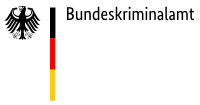With the increasing use of information technology in the economic sector, administration, science and other areas, its significance both as target but also as means of criminal threats is on the rise.
While in the past the conviction of an offender involved the seizure of written documents, photos or audio tapes, today, such evidence is increasingly found as text, image and audio files on electronic devices and in networks.
One of the "Technologies" group's main tasks is therefore the development of methods and tools for
- analysis,
- evaluation,
- visualisation and storage
of digital data.

In order to do so, new developments in the field of IT are constantly studied. For the immediate support, a pool of partially exotic hardware and software is maintained from which configurated material can be provided suited to the case in question.
One focus of research and development is the analysis of data carriers. In the majority of investigations involving IT, the challenge is to render the information readable that is stored on data carriers.

Evidence can be in the form of computer discs with numerous formats, magnetic tapes, magnetic tape cassettes, hard discs and exchangeable discs, magnetic strip cards, chip cards and semi-conductor storage devices as well as mobile phones, SIM cards and PDAs, which often exhibit logical and physical damage.
But it is not only as trace carrier that the information technology is becoming more and more important. Modern computer technology is increasingly used as a crime instrument or is the target of criminal activities. Chip cards (health insurance card, phone card) are, for example, manipulated or forged, computer networks are compromised or destroyed and the many opportunities for nefarious dealings provided by the internet are abused.
The BKA's "Technologies" group has met these challenges and develops methods and tools for investigative support and seizure of evidence in criminal cases in which the most modern technologies are used for the commission of crimes.

For this purpose
- research and development projects are conducted in co-operation with external bodies,
- hardware and software are designed and constructed for special tasks,
- individual technical support in specific investigations is provided.
For especially difficult tasks, a comprehensive arsenal of computer technology and analysis devices is available, which is continually developed and updated to maintain state-of-the-art standards of technology.
